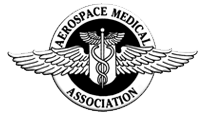FAA Office of Aviation Medicine Civil Aeromedical Institute
A commonly held belief is that medicine cures all that ails.
Whether medicine is prescribed by a doctor or is an over-the-counter medication that you have selected, as a pilot you must consider the effect it will have on your performance.
When you are given a prescription, your doctor explains the possible side-effects of the medication you are about to take. Your pharmacist also outlines them when filling the prescription.
However, when you treat yourself with a non-prescription medication, you become your own doctor and pharmacist. Therefore, you must inform yourself of the possible adverse reactions that you might encounter. The following will help you understand some of the basics that you will need to successfully accomplish this task.
OTCs Defined
Over-the-counter medications (OTCs) are any legal, non-prescription substance taken for the relief of discomforting symptoms. This may include capsules, tablets, powders, or liquids.
Underlying Medical Condition
When you are not feeling well, your best action is to ground yourself and wait until you have recovered before resuming your pilot duties. There may be times, however, when you feel that you must fly and will be tempted to doctor yourself with OTCs. At these times it is good to remember that the OTCs only hide your symptoms for a while. They do not usually “cure” the condition, and you will not be at peak physical performance while you fly.
Problems With Medications
There are two main areas of concern about unwanted reactions to medications.
Possible allergy.
Allergy is a rare and unpredictable reaction to a substance. If you know that you are allergic to something, you should carefully read the list of ingredients of any OTC to assure that none of the substance is included in its formulation.
Possible unexpected side-effects.
These can take many forms, including drowsiness, impairment of judgment, upset stomach or bowels, disturbance of vision, or even itching. Any of these could cause an impairment that might lead to incapacitation while flying.
Decongestants and caffeine (contained in coffee, tea, cola, chocolate) are both strong stimulants in some individuals. Mixed together, they can make you “hyperactive.” Note also that some cough syrups contain a decongestant.
Summary Advice
- READ and follow label directions for use of medication.
- If the label warns of side-effects, do not fly until twice the recommended dosing interval has passed. So, if the label says “take every 4-6 hours,” then wait at least 12 hours to fly. [More recent guidance from the FAA’s suggests an interval of 5-times the maximum pharmacologic half-life of the medication; or 5-times the maximum hour dose interval if pharmacologic half-life information is not available. For example, there is a 30-hour wait time for a medication that is taken every 4 to 6 hours (5 times 6)]
- Remember, the condition you are treating may be as disqualifying as the medication.
- When in doubt, ask your physician or Aviation Medical Examiner for advice.
- As a pilot, you are responsible for your own personal “pre-flight.” Be wary of any illness that requires medicine to make you feel better.
- If an illness is serious enough to require medication, it is also serious enough to prevent you from flying.
- Do not fly if you have a cold – changes in atmospheric pressures with changes in altitude could cause serious ear and sinus problems.
- Avoid mixing decongestants and caffeine.
- Beware of medications that use alcohol as a base for the ingredients.
| MEDICATION | SIDE-EFFECTS | INTERACTIONS | |
| PAIN RELIEF/FEVER | ASPIRIN Alka-Seltzer Bayer Aspirin |
Ringing in ears, nausea, stomach ulceration, hyperventillation | Increase effect of blood thinners |
| ACETAMINOPHEN Tylenol |
Liver toxicity (in large doses) | ||
| IBUPROFEN Advil Motrin Nuprin |
Upset stomach; dizziness, rash, itching | Increase effect of blood thinners | |
| COLDS/ FLU | ANTIHISTAMINES Actifed Dristan Benadryl Dixoral Cheracol-Plus Nyquil Chlortrimeton Sinarest Contac Sinutab Dimetapp |
Sedation, dizziness, rash, impairment of coordination, upset stomach, thickening of bronchial secretions, blurring of vision | Increase sedative effects of other medications |
| DECONGESTANTS Afrin Nasal Spray Sine-Aid Sudafed |
Excessive stimulation dizziness, difficulty with urination, palpitations | Aggravate high blood pressure, heart disease, and prostate problems | |
| COUGH SUPPRESSANTS Benylin Robitussin Vicks Formula 44 |
Drowsiness, blurred vision, difficulty with urination, upset stomach | Increase sedative effects of other medications | |
| BOWEL PREPARATIONS | LAXATIVES Correctol Ex-Lax |
Unexpected bowel activity at altitude, rectal itching | |
| ANTI-DIARRHEALS Imodium A-D Pepto-Bismol |
Drowsiness, depression, blurred vision (See Aspirin) | ||
| APPETITE SUPPRESSANTS | Acutrim Dexatrim |
Excessive stimulation, dizziness palpitations, headaches | Increased stimulatory effects of decongestants. Interfere with high blood pressure medications |
| SLEEPING AIDS | Nytol Somined |
(Contain Cause excessive AIDS Somined antihistamine) drowsiness when Prolonged used with alcohol drowsiness, blurred vision | Cause drowsiness when used with alcohol |
| STIMULANTS | CAFFEINE Coffee, tea, cola, chocolate |
Excessive stimulation, tremors, palpitations, headache | Interfere with high blood pressure chocolate medications. |
This table lists the common OTCs and outlines some of their possible side-effects that could affect your flying abilities. As with all drugs, side-effects may vary with the individual and with changes in altitude and other flight conditions.



